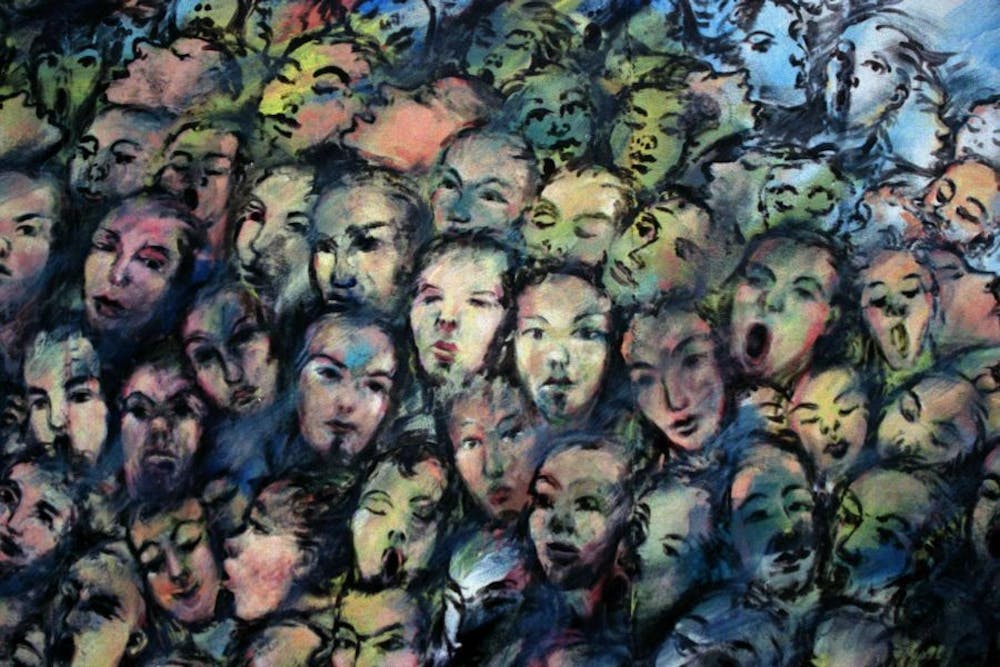Maddie's Matters
By Maddie LePlante-Dube, For The Miami Student
"The mental healthcare system in Ireland is shite," said my friend from across the table.
We sat down for an impromptu coffee date in South Dublin right before a mental health seminar she would be attending. It was Mental Health Week at Trinity College.
"Up until about six or seven years ago, people never even talked about it," she said. "Mental health and depression were taboo topics."
But she spoke candidly about her experience dealing with severe depression.
"I've found meds really helpful. I took myself off of them because I didn't really need them anymore and they destroy your sex drive. But they were what got me to a healthier place."
What made her feel like she needed medication?
"I tried to kill myself."
She sipped her coffee and pieced together her story unabashedly. An emotionally abusive relationship, a couple of breakups, a stay in a hospital for severe self-harm, a negative, self-pitying group of friends, a bartending job with a lot of post-shift drinks, an overbearing mother.
These things coupled with a serotonin deficiency are more than enough to make a person want out. But after making some life changes, she was able to get in control.
Part of that control was being able to construct her own narrative about her experience, being able to articulate her story without the sense of shame usually associated with ideas surrounding mental illness. It's a narrative that's becoming much more open to exploration, a frontier in many ways.
Enjoy what you're reading?
Signup for our newsletter
After 40 years, the story of Christine Chubbuck, a Florida newscaster in the 1970s, is suddenly making rounds again.
Two films that premiered at the 2016 Sundance Film Festival, including "Christine," recount the story of the 29-year-old TV journalist who shot herself in the head with a .38 caliber pistol live on air. She died the next day.
Both of the films explore the lead up to Chubbuck's final hours, examining the ways her family members and co-workers distanced themselves from her struggles with severe depression by focusing and placing the blame on her romantic life, or lack thereof.
The original report of her suicide in The Washington Post in 1974 preserves the problematic ways in which her life and subsequent death were dealt with. Her mother called Chubbuck a "spinster" who, once she turned 30, would become an "old maid." She had given Chubbuck's possible suicide a lot of thought, saying that she supposed she would have drowned herself, not shot herself.
"I think,' said her mother, 'she was saying, 'Look, world, I've been here all along. How about a date Saturday night?' But her last act was the most selfish thing she ever did. She brought her death into other people's homes,'" recounts the original report in the Post.
Any reader with a critical eye could see just by browsing through that 1974 article that Chubbuck's suicide could have been prevented.
Everyone in her life knew she had depression but felt that she was too intense a person to help. Her family members knew she was considering suicide and even knew, consciously or subconsciously, that suicide was the method by which she was going to die, but offered her no real solutions. All they needed to do was try to help her help herself.
Rebecca Hall, the actor playing Chubbuck in Christine, sums it up best in an interview with the BBC: "She just shouldn't have died."
Back in the coffee shop, my friend was finishing her story.
After her suicide attempt, it was a harsh slap in the face that shook her enough to try and make a change.
"I told my friends [about it] and they said, 'This is enough. You need to get your shit together. You need to do something about this.' So I contacted a psychiatrist."
Here's the key phrase: "I told my friends."
Stories like Christine Chubbuck's, real though they are, paint an extreme picture of mental illness.
Oftentimes conditions like depression, anxiety and bipolar disorder are much more subtle.
Sundance stirred up conversations about mental illness with its showings of the two Chubbuck movies, but it is important to keep the conversation going as 2016 rolls on.
If you are suffering from mental illness, it's not something to be ashamed of. Don't be afraid to seek help. If you know someone who is suffering from mental illness, let them know that you care about them.
Sometimes all it takes is sitting down for coffee.




